How to Get Away With Murder Season 1 Finale Review: Into the Deep (Water Tank)
How to Get Away With Murder S01E14 & S01E15: "The Night Lila Died" & "It's All My Fault"
Intrepidly, we navigated seas of loosely connected, yawning cases of the week when all we really wanted was an end to the oft-twisty, oft-turny, all-bendy path toward how... to get away... with murder. All to find crippling absurdity.
I won't even bother much with the first half of How to Get Away with Murder's two-hour Season 1 finale except to say it was pretty typical fare: a case unrelated to the seasonal arc except for some not-so-subtle nods to the individual characters' states of mind (or sometimes just an excuse for the lawyers to be lawyering), with teases of the Lila murder investigation and trial(s) sprinkled throughout. That is to say, the first hour was terribly boring and, at this point in the season, felt like a waste of time.
Those who've read my previous reviews might recall that the very things I demonize about How to Get Away With Murder—namely, the cases—are exactly what I now miss on the show's fellow Shondaland drama Scandal. We haven't seen Olivia Pope truly do her thing since Scandal's writers struck more of a balance between the sudsier parts of the show and the more painful love triangles they're committed to maintaining (yes, I still believe that Olivia just needs to forget about the men in her life, because they're all the collective living worst; she should never think about jam and Vermont ever again). And I fully admit that How to Get Away With Murder would be dull if it only focused on trying to figure out what really happened at that water tank. Cases of the week are about more than filler (or at least they should be), since they allow us to see characters in action instead of in the throes of temper tantrums.
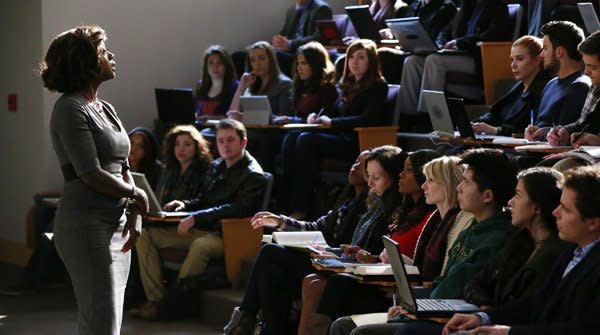
But as the final episodes of the season started to pile up, the cases and lives of people not in the employ of Annalise Keating became distractions in an already stretched show. There's school and there's the law practice and there's the cover-up and there's the law student ducklings' inside-feelings. It was a lot to keep track of, and many things suffered, especially because these kids are actually in school and are supposed to be learning, not doing. I mean, what kind of education are the non-ducklings getting out of this class when AK goes off syllabus and starts sending her minions code for how to get away with their clandestine killing? Ms. Leibowicz, you can sit down now.
The bottom line is, once we reached a certain point in the season, the cases began to feel less satisfying from a character-development standpoint and more like filler, since there weren't many questions left to answer in the Lila case and the writers had to stretch the whole thing out across 15 episodes. The only real takeaway from the first hour of the finale and its case was that the priest the episode focused on wasn't a very good priest for a lot of reasons. Not only was he not very good at his job—which is primarily about fealty to God and not making eyes at the b'sweatered women he works with—but he killed someone, an act the hour attempted to justify by slapping a pederast tag on the victim as a shortcut to making a character expendable and humanizing a murderer. And if there's one thing we can all agree on, it's that child-touchers deserve the worst this world can deal them.
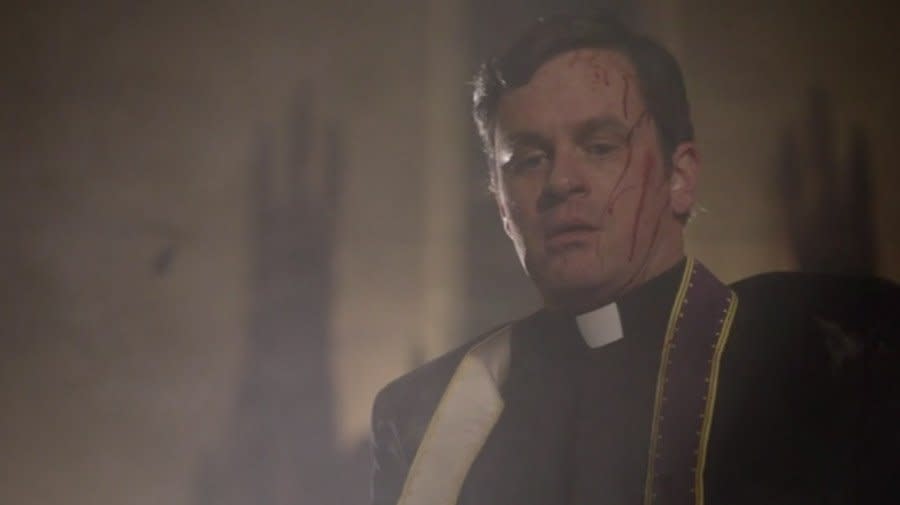
But there was a subtle, maybe even unintentional, nod here to the difficulty of surrendering your free will when you're only human. Priestly vows mean tendering the gift of free will, an Abrahamic sacrifice that requires a forever commitment. Once the sacrifice has been made, technically, the priest isn't supposed to ask for that free will back from his maker. For those who commit to such holy vows, the mandate is that they must be observed until death, either peacefully or in martyrdom. I'm looking at you, Piccarda Donati and Constance of Hauteville.
That fealty is present in the Keating law office. I don't want to make too many comparisons between Scandal and How to Get Away With Murder because there aren't that many similarities, but one of the more dynamic parallels is the messianic figurehead whom everyone blindly follows. All who stray from the path of Annalise Keating suffer a penance levied by the universe.
Of course, with that said, the seasonal arc about the murder of a pregnant sorority girl was ultimately about the ducklings' dramatic fall from the safety of their nest to the harsh, cold ground.
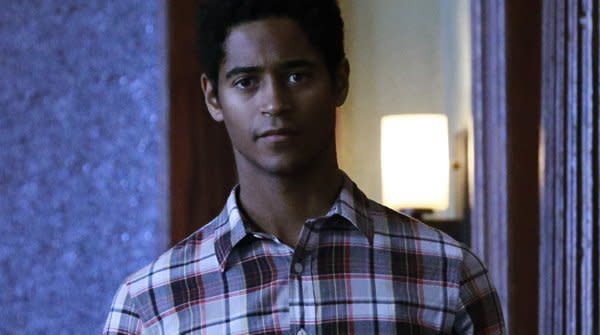
That's how we went from Wes biking so proudly across campus, concerned only with being on time for class, to Wes being the impetus for a study group's sharp downfall and, eventually, tying up his girlfriend with duct tape and locking her in a bathroom. And so, as was the case for most of the rest of the season, the only important part of the finale's first hour were its last five minutes.
The second hour concentrated on a disappointing mock trial that gave Rebecca her "day in court." The ducklings had all gone bonkers identifying holes in Rebecca's timeline and investigating her mysterious relationship with the guy who lived in Wes's apartment before he moved in. Over the course of the last few episodes, these issues have exploded into huge deals. However, they reveal more about the characters' psyches than they do about the actual storyline.
All told, the plot hasn't changed much since the start of the last season: Sam did it. He might not have been the one to actually squeeze his hands around Lila's throat, but he did ensure that she died in a creepy, I'm-gonna-do-it-but-it-won't-actually-be-me-because-I-have-a-guy-for-that sort of way... by hiring Frank to do the job for him. Is that a revelation for us? I mean, I suppose it is, in that Frank has been involved all along and now we know that the snake has been ravenously feasting on its own tail. But the culprits are all the same. And the innocent people are still innocent.
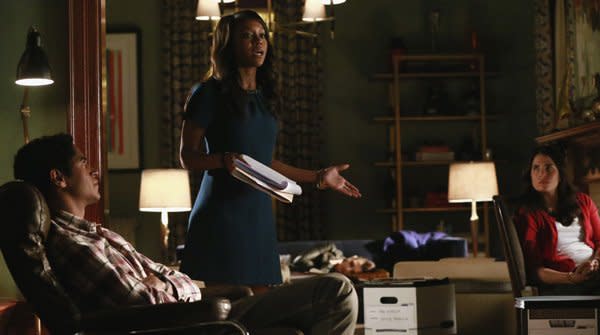
So basically, the last few episodes featuring bang-up detective work by Wes and Laurel, which led to holding a (more or less) innocent woman hostage, was a red herring. We were led to believe that Sam might not be the killer, but he so very much was. And now that we realize that, as far as the murder story goes, we haven't really moved very much since, like, Episode 4.
It seems that, instead of focusing on what actually happened to Lila and how the ducklings would get away with murder, the finale wanted us to turn our attention to the ducklings' downward spiral under the tutelage of the cometary ball of anxiety, stress, and confidence that is Annalise Keating. I'm sure none of her other groups of interns have had to deal with their very own dead body, but I'm guessing that—wait, is every school year a new game of Clue for the new crop of interns? Does Annalise hire a new Sam Keating every September so that he might eventually be killed by said interns, who go on to learn valuable lessons of victim empathy, PTSD, and divining solutions to getting away with heinous acts? That would be dash cunning of you, AK.
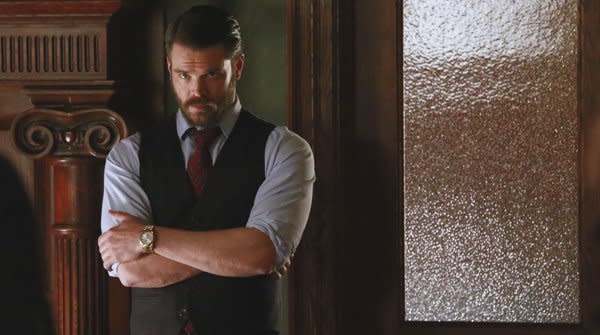
Assuming that Sam isn't Mr. Boddy, this is a special group with their own isolated disaster. Perhaps past groups were obsessed with AK's cases and surviving final exams, but this one is about self-destruction. And final exams. Each member of the "team" has changed in some manner because of what's happened this year: Michaela's type-A personality is bringing about the ruin of her façade, but possibly for the betterment of her future; Connor is looking for any kind of anchor in these rocky seas, desperately clinging to Oliver (who now has AIDS?!?); Wes is a whimpering fool; Laurel and Asher are—well, neither has changed much. The latter didn't really get exposed to the full throttle of this year's crazy, and the former might be the closest thing this show has to a sociopath.
So what are we left now? A group of broken kids who I guess are just going to continue with law school to keep up appearances while they continue trying to get away with murder. A professor who's basically unchanged. And another body and, therefore, another murder someone will try to get away with. Sorry, Rebecca.
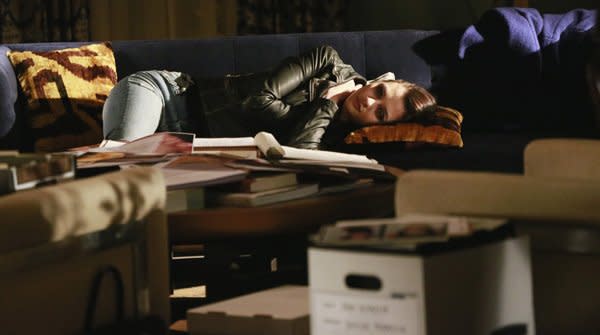
In the end, you have to wonder how much better this show might've been in a tighter window. Would it have dragged at all if it'd only had 13 episodes to work with, or even 10, instead of 15? Would it have earned its revelations more honestly, without the red herring arc near the end?
Regardless, the most important question that remains is, "Was this finale enough to lure you back for Season 2?" And yes, it appears that there WILL be a Season 2. Returning viewers will have to be invested in the show's characters, because the mysteries raised at the end aren't really compelling enough to keep people interested, I don't think. Will you come back just to find out who killed Rebecca and how s/he will get away with it? Will you come back to see how much more trouble Wes can get everyone into, how far into the crazy these kids will find themselves. Are you curious to see what other bombs this show can drop in the last five minutes of every episode? I think that's the hope.
Also, I'd like to see more of Asher being the douchiest douche that ever douched.
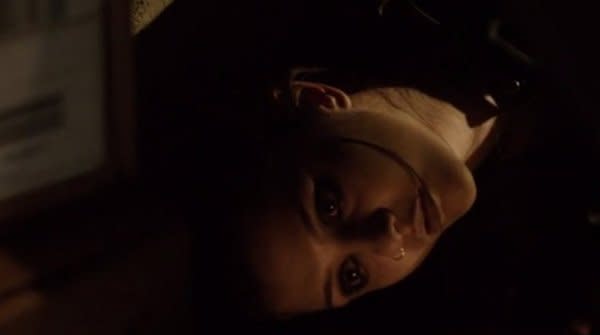
What did you think of the finale, and of Season 1 as a whole?



